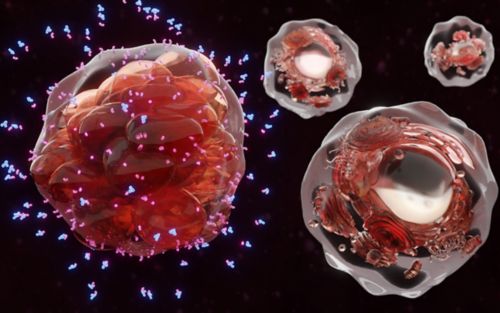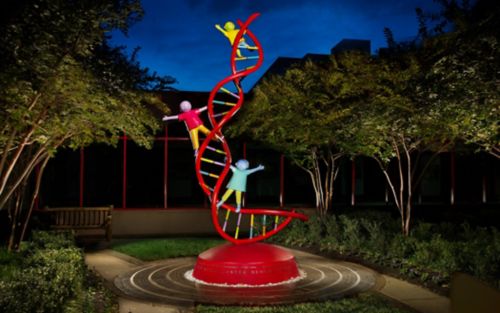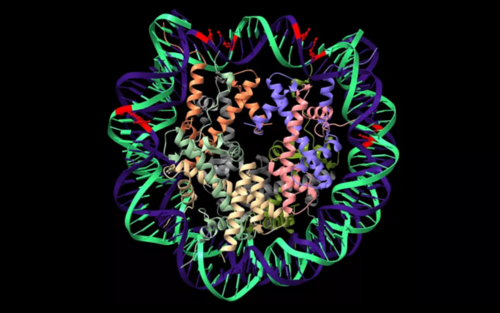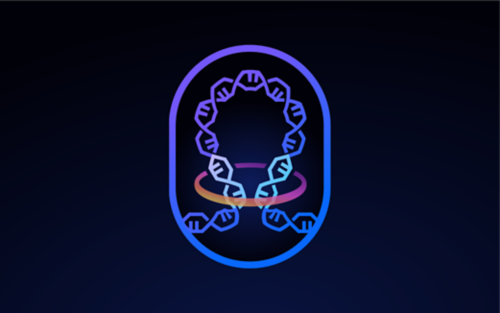St. Jude Family of Websites
Explore our cutting edge research, world-class patient care, career opportunities and more.
St. Jude Children's Research Hospital Home

- Fundraising
St. Jude Family of Websites
Explore our cutting edge research, world-class patient care, career opportunities and more.
St. Jude Children's Research Hospital Home

- Fundraising
About the department
The Department of Computational Biology develops innovative computational methods to answer challenging biological questions. Through the integration of dry- and wet-lab approaches, cutting-edge software development, and interdisciplinary collaboration, we generate knowledge and tools to advance the treatment of pediatric cancers and other catastrophic diseases.
Analytical techniques and visualization tools developed through major interdisciplinary efforts like the St. Jude–Washington University Pediatric Cancer Genome Project (PCGP) have led to major findings about pediatric cancer genomes — including novel driver and predisposing mutations — and the nomination of therapeutic strategies.
Our data-driven approaches are now being used for many clinical applications, including cancer genetic predisposition studies and the development of targeted therapies. Some of these are being assessed in St. Jude-led pediatric clinical trials. To advance cures, we freely share our data analysis software and interactive visualization tools with the global scientific community.
In the news
Initiatives and collaborations
-
Sharing data and analysis tools with the global research community
-
Working together to identify genetic and chemical pediatric cancer vulnerabilities
-
Identifying novel immunotherapies for pediatric cancer through systems biology
-
Defining the genomic landscape of pediatric cancer through a historic sequencing effort
-
Empowering researchers to explore, analyze, and share pediatric cancer survivor data
-
Creating a leading knowledgebase of pediatric solid tumor epigenetic & histology data
-
Unraveling the nuclear and chromatin architecture driving pediatric cancers
-
Making valuable clinical genomic data available on a continuous basis
Computational Biology Faculty
-
View Details
Brian J. Abraham, PhD
Assistant Member, St. Jude Faculty
Course Director, Computational Biology, St. Jude Graduate School of Biomedical Sciences
Brian J. Abraham, PhD
Assistant Member, St. Jude Faculty
Course Director, Computational Biology, St. Jude Graduate School of Biomedical Sciences
Affiliations
Research Interests
- Studying how gene transcription is regulated, including genome organization and responses to environmental cues.
- Investigating transcriptional changes in disease to understand pathology and identify potential treatments.
- Exploring DNA elements that regulate cell identity, tumor survival, and mutations, while modeling core regulatory circuits.
- Developing tools to map super-enhancers, their interactions, and the genes they regulate using sequencing data.
Contact Information
Brian J. Abraham, PhD
Computational Biology
MS 1135, Room IA6050
St. Jude Children's Research Hospital
262 Danny Thomas Place
Memphis, TN 38105-3678
-
View Details
Samuel W. Brady, PhD
Assistant Member, St. Jude Faculty
Samuel W. Brady, PhD
Assistant Member, St. Jude Faculty
Affiliations
Research Interests
- Integrating cancer genomics and pharmacology to discover new treatments for pediatric cancer
- Using cancer mutational signatures to develop novel treatment and prevention strategies
- Identifying therapeutic vulnerabilities linked to driver rearrangements and other mutations in cancer
- Translating genomic findings from patients into experimental approaches to improve cancer therapies
Contact Information
Samuel W. Brady, PhD
Pharmacy & Pharmaceutical Sciences
MS 313, Room I5308
St. Jude Children's Research Hospital
262 Danny Thomas Place
Memphis, TN 38105-3678
-
View Details
Xiang Chen, PhD
Associate Member, St. Jude Faculty
Affiliations
Research Interests
- Algorithm development for assessing the interplays between genetic alterations and epigenetic deregulations
- Functional consequences of complex genetic alterations in pediatric solid tumors
- Novel biological discovery from high throughput screening
Contact Information
Xiang Chen, PhD
Computational Biology Department
MS 1135, Room IA6043
St. Jude Children's Research Hospital
262 Danny Thomas Place
Memphis, TN 38105-3678
-
View Details
Yong Cheng, PhD
Associate Member, St. Jude Faculty
Affiliations
Research Interests
- Studying the functions of the human genome, focusing on non-coding regulatory elements
- Using high-throughput genomic approaches to investigate regulatory elements in blood development and disorders
- Exploring the use of regulatory elements in genome editing and gene therapy for genetic disorders
Contact Information
Yong Cheng, PhD
Hematology
MS 341, Room D3007F
St. Jude Children's Research Hospital
262 Danny Thomas Place
Memphis, TN 38105-3678
-
View Details
Paul Geeleher, PhD
Associate Member, St. Jude Faculty
Paul Geeleher, PhD
Associate Member, St. Jude Faculty
Affiliations
Research Interests
- Applications of machine learning and AI in translational medicine
- Genomics technologies (e.g. single-cell / spatial transcriptomics)
- Drug target and drug combination discovery
- Neuroblastoma
Contact Information
Paul Geeleher, PhD
Computational Biology
MS 1135, Room IA6052
St. Jude Children's Research Hospital
262 Danny Thomas Place
Memphis, TN 38105-3678
-
View Details
Xiaotu Ma, PhD
Associate Member, St. Jude Faculty
Research Interests
- Mathematical modeling
- Early detection of cancers
- Clonal evolution
- Germline mosaicism
Contact Information
Xiaotu Ma, PhD
Computational Biology
MS 1135, Room IA6049
St. Jude Children's Research Hospital
262 Danny Thomas Place
Memphis, TN 38105-3678
-
View Details
Jiyang Yu, PhD
Member, St. Jude Faculty
Interim Chair, Department of Computational Biology
Jiyang Yu, PhD
Member, St. Jude Faculty
Interim Chair, Department of Computational Biology
Affiliations
Research Interests
- Systems biology and immunology
- Single-cell and spatial systems biology
- Immuno-oncology
- Translational research
Contact Information
Jiyang Yu, PhD
Computational Biology
MS 1135, Room IA6053
St. Jude Children's Research Hospital
262 Danny Thomas Place
Memphis, TN 38105-3678
-
View Details
Jinghui Zhang, PhD
Member, St. Jude Faculty
St. Jude Endowed Chair in Bioinformatics
Jinghui Zhang, PhD
Member, St. Jude Faculty
St. Jude Endowed Chair in Bioinformatics
Affiliations
Research Interests
- Using large-scale, multi-dimensional genomic data to understand the initiation and progression of pediatric cancers
- Development of computational methods for analyzing large-scale genomic data and visualization tools for viewing integrative genomic data
Contact Information
Jinghui Zhang, PhD
Computational Biology
MS 1135, Room IA6038
St. Jude Children's Research Hospital
262 Danny Thomas Place
Memphis, TN 38105-3678
-
View Details
Xin Zhou, PhD
Assistant Member, St. Jude Faculty
Director of Data Visualization
Xin Zhou, PhD
Assistant Member, St. Jude Faculty
Director of Data Visualization
Research Interests
- Designing and developing state-of-the-art software systems for:
- indexing and integrating structured omics and biomedical big data
- real-time querying and analysis
- visual exploration of cancer clinical and omics datasets
Contact Information
Xin Zhou, PhD
Computational Biology
MS 1135, Room IA6034
St. Jude Children's Research Hospital
262 Danny Thomas Place
Memphis, TN 38105-3678
- Designing and developing state-of-the-art software systems for:
Groups
Administrative team
- Carolyn Reed - Administrative Director
- Moe Alqawasmi - Administrative Coordinator
- Sarah August - Science Research Writer
- Caitlin Conley de Pastor - Sr Administrative Coordinator
- Karen Hill - Sr Administrative Specialist
- Loretta Saulsberry - Grants & Contracts Administrator II
- Patrece Williams - Sr Administrative Specialist
Contact us
Department of Computational Biology
MS 1135, Room IA6038
St. Jude Children's Research Hospital

Memphis, TN, 38105-3678 USA GET DIRECTIONS





























